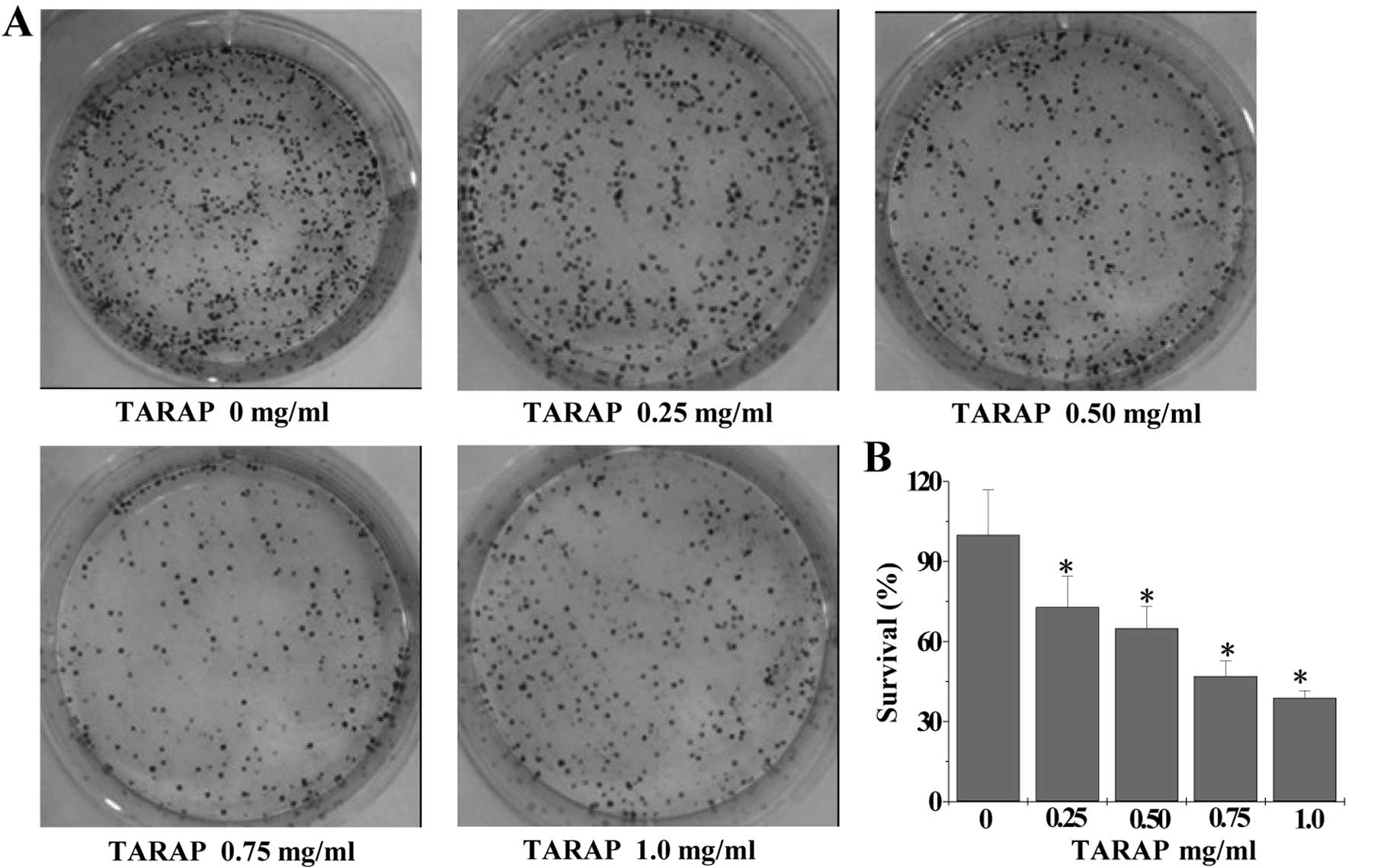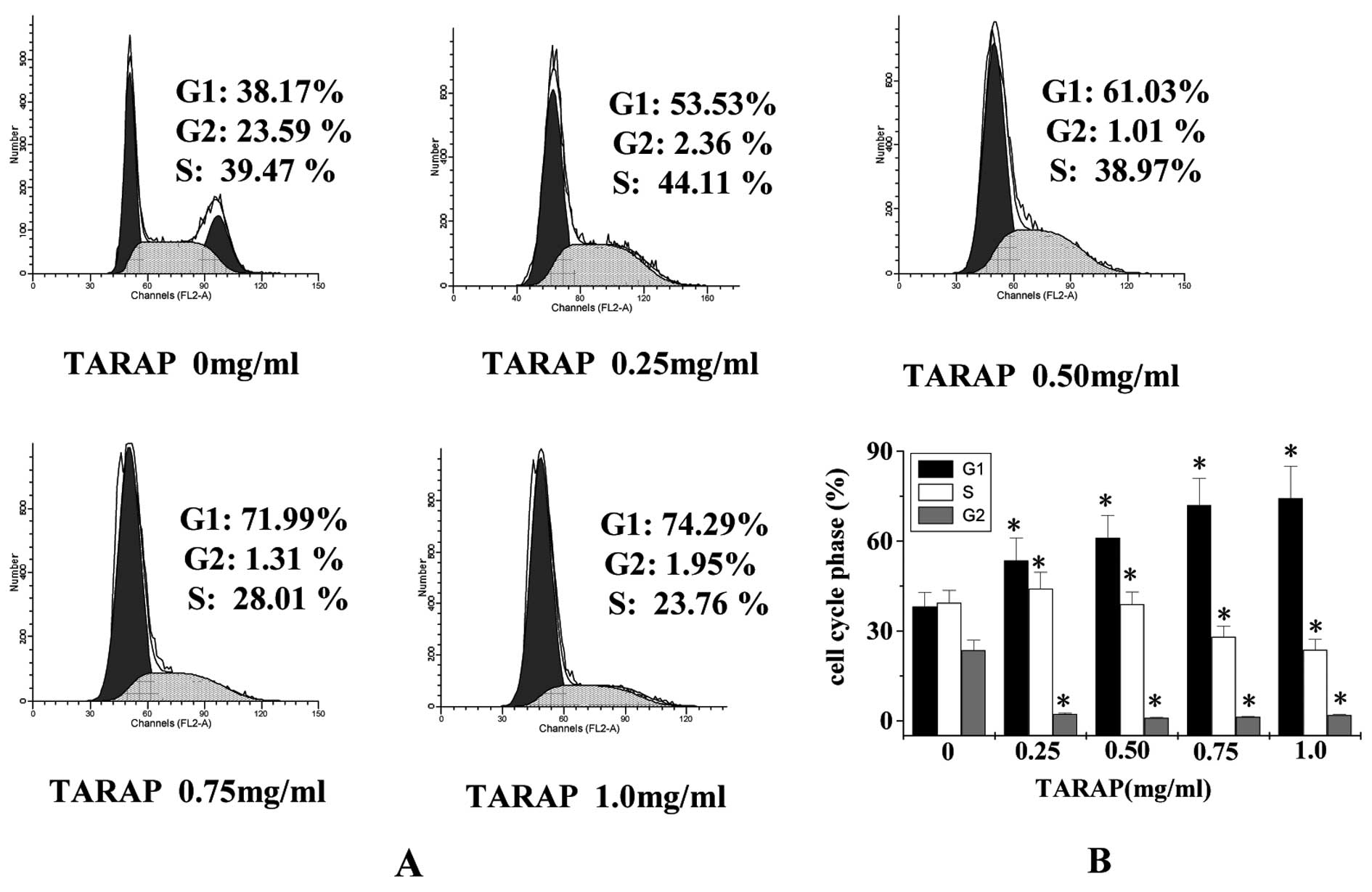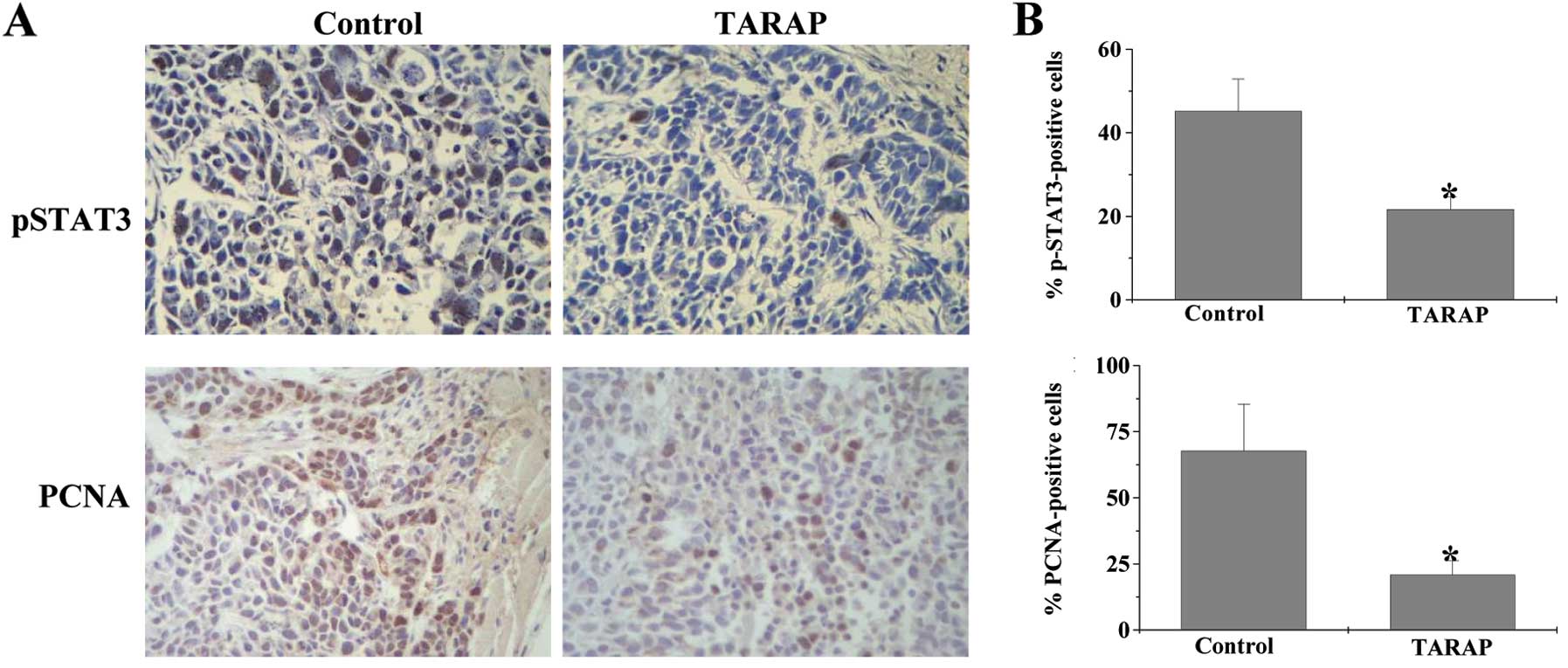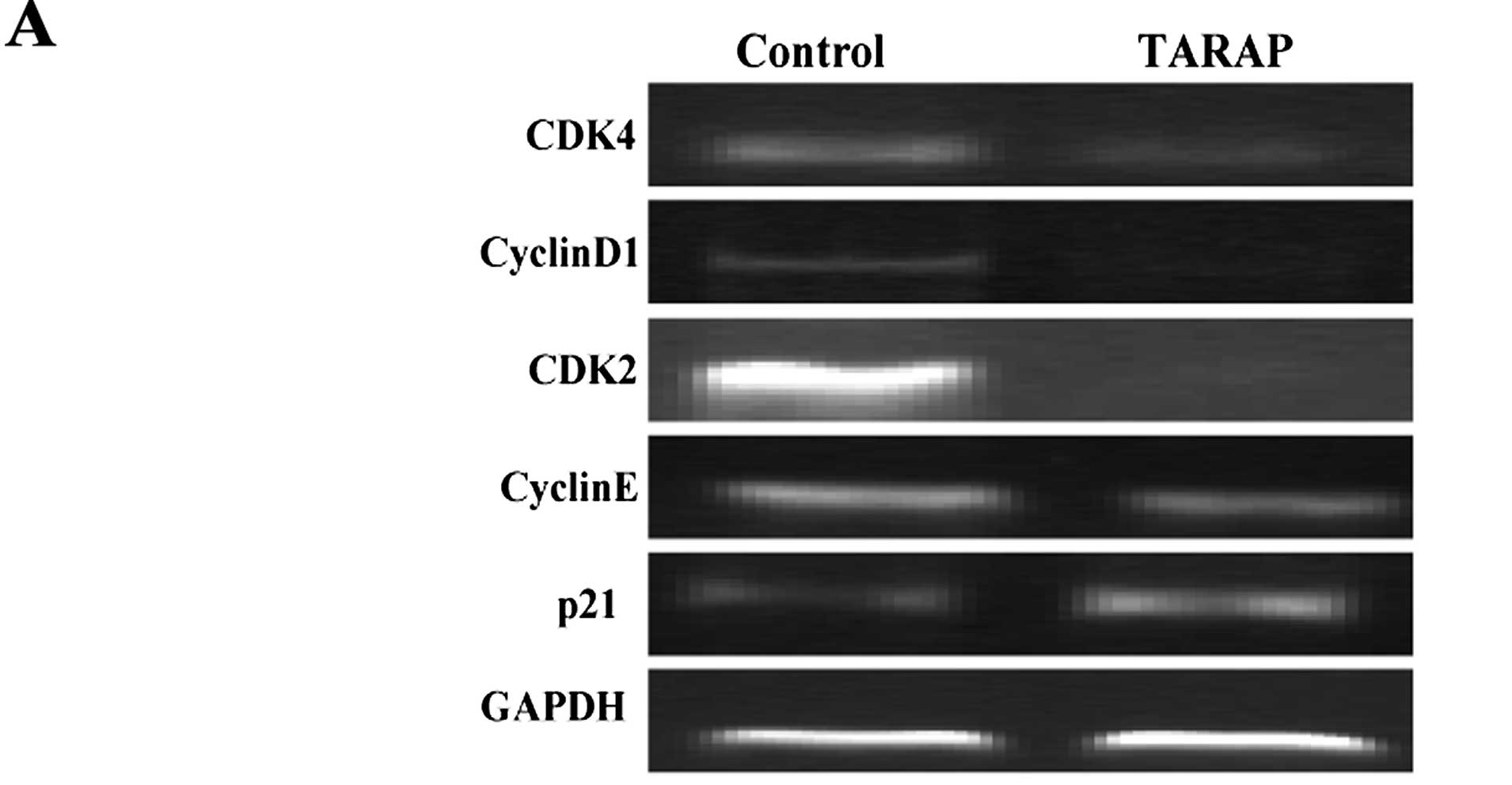Spandidos Publications style
Zhao J, Lin W, Cao Z, Liu L, Zhuang Q, Zhong X, Hong Z and Peng J: Total alkaloids of Rubus aleaefolius Poir. inhibit the STAT3 signaling pathway leading to suppression of proliferation and cell cycle arrest in a mouse model of hepatocellular carcinoma. Oncol Rep 30: 1309-1314, 2013.
APA
Zhao, J., Lin, W., Cao, Z., Liu, L., Zhuang, Q., Zhong, X. ... Peng, J. (2013). Total alkaloids of Rubus aleaefolius Poir. inhibit the STAT3 signaling pathway leading to suppression of proliferation and cell cycle arrest in a mouse model of hepatocellular carcinoma. Oncology Reports, 30, 1309-1314. https://doi.org/10.3892/or.2013.2585
MLA
Zhao, J., Lin, W., Cao, Z., Liu, L., Zhuang, Q., Zhong, X., Hong, Z., Peng, J."Total alkaloids of Rubus aleaefolius Poir. inhibit the STAT3 signaling pathway leading to suppression of proliferation and cell cycle arrest in a mouse model of hepatocellular carcinoma". Oncology Reports 30.3 (2013): 1309-1314.
Chicago
Zhao, J., Lin, W., Cao, Z., Liu, L., Zhuang, Q., Zhong, X., Hong, Z., Peng, J."Total alkaloids of Rubus aleaefolius Poir. inhibit the STAT3 signaling pathway leading to suppression of proliferation and cell cycle arrest in a mouse model of hepatocellular carcinoma". Oncology Reports 30, no. 3 (2013): 1309-1314. https://doi.org/10.3892/or.2013.2585


















